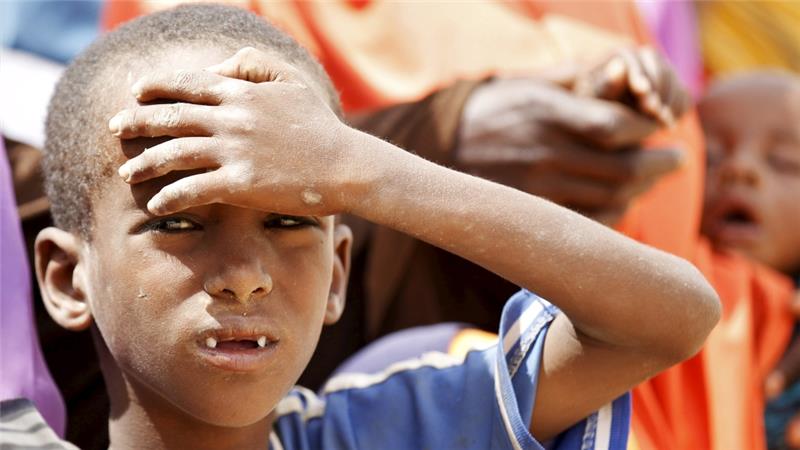In the wake of the Garissa University College shootings that left nearly 150 people dead, the Kenyan government has threatened to close the world’s largest refugee camp. In response, US Secretary of State John Kerry promised an extra $45m to the United Nations to cope with their refugee crisis, presenting an opportunity for Kenya to support over 600,000 refugees from Somalia and South Sudan in a way that not only empowers those refugees, but also enhances its own security and prosperity.

Lately, the Kenyan government has not proven itself to be a paragon of a host country for displaced people. Its treatment of Somali refugees after the Garissa shooting has shown the government to be an understandably nervous one, looking for a scapegoat for increasingly common terrorist attacks. With the threat to shut down the Dadaab camp, they risk further displacing an already traumatised group of people. They can – and must – do better.
| |
As a refugee and as someone who has worked with refugees for over 16 years, I know that not only can Kenya do better, but it can also create a model for how other countries can deal with a constant influx of displaced people from various conflicts.
Loss of identity
After escaping unrest in Sierra Leone in March 1991, I learned that when you start to run at a young age, one of the things you lose is your identity. National identity is something most people take for granted, yet to this day, I still have a difficult time knowing how to tell people where I’m from.
My family was displaced for so long that some of my siblings were born while we were refugees in Guinea and have never seen Sierra Leone. It remains difficult for my family to make sense of who we are. I am not “Guinean” or “Sierra Leonean” or “American” but “a refugee”.
When we lose this sense of statehood, we try to find other places to belong. We can lose our self-worth and sense of social responsibility. This lack of ownership in a country is often what leads to extremism. The Garissa shooters may not have been refugees, but the current hostile treatment of displaced Somalis in Kenya will only lead to further attacks.
| We can lose our self-worth and sense of social responsibility. This lack of ownership in a country is often what leads to extremism.
|
I was 16 when I became a refugee. At a time when I should have been imagining an exciting future for myself, I had to focus on survival and started to feel hopeless.
This, combined with a loss of identity, made me strongly consider joining an armed group in the Sierra Leone war; it was only the intervention of my family that stopped me. The programmes in the refugee camps, though useful in caring for immediate needs, failed to address my long-term needs as my stay dragged on. I felt like I was just another statistic.
Radical groups
Today, many radical groups like al-Shabab, ISIL, al-Qaeda, Boko Haram and others are indoctrinating youths by providing something to believe in. They offer what many of us sorely needed: an identity.
The leaders of these radical ideologies are finding more and more recruits as unemployment and poverty grow, justice systems fail, and discrimination that undermines human dignity flourishes. Refugees become easy prey under these conditions.
However, we can change that by helping refugees maintain their sense of connection to a positive community. Part of that $45m must go towards addressing the long-term needs of refugees rather than just immediate problems.
With refugees often displaced for months and years, educational, employment and skills programmes for youth help keep their dreams alive for when they are able to return home. Host communities must also build on the social bonds that they share with the refugees.
In the end, the communities started to work together. Think about the effect that a shared educational institution, health facilities, sporting centre for kids, or common worship locations could have on the stability of both host and refugees.
New reality
We need to find ways to help both displaced people and their hosts live peacefully within their new reality. There are many opportunities to stabilise communities, including helping refugees contribute to the development of their host nations.
The truth is that the refugees or displaced persons around bordering nations often share a lot in common with their host. Some have the same languages, religion, and culture. Others share healthcare and educational systems, and social norms. We need to use these connectors to promote peaceful cohabitation and minimise the frustrations among host nations and the refugees.
As a host country, Kenya must respect the human rights of Somali refugees, uphold the rule of law, and engage with the refugees. To start, there needs to be a deliberate move to involve influential Somalis such as imams, youth leaders and business elites in the fight against al-Shabab. Without this, we will see an increase in radicalism.
The war that chased the Somali refugees from their homes is physical, but Kenya has an opportunity to influence the mentality that they live and leave with.
There was a time when Somalis saw Kenya as a safe haven. They didn’t just see it as a host community, but a place they could belong. Kenya, along with other host countries, must protect the dignity of refugees and we must all support the Kenyan government in finding better ways to manage their well-founded fears.
With these moves, Kenya has the opportunity to serve as a model for preserving the identity and dignity of displaced people who temporarily make their homes within its borders.
Abraham Leno, a former refugee in Guinea, is currently the country representative for the American Refugee Committee in Bukavu, Congo. He is a 2015 Aspen Institute New Voices Fellow.
The views expressed in this article are the author’s own and do not necessarily reflect Al Jazeera’s editorial policy.